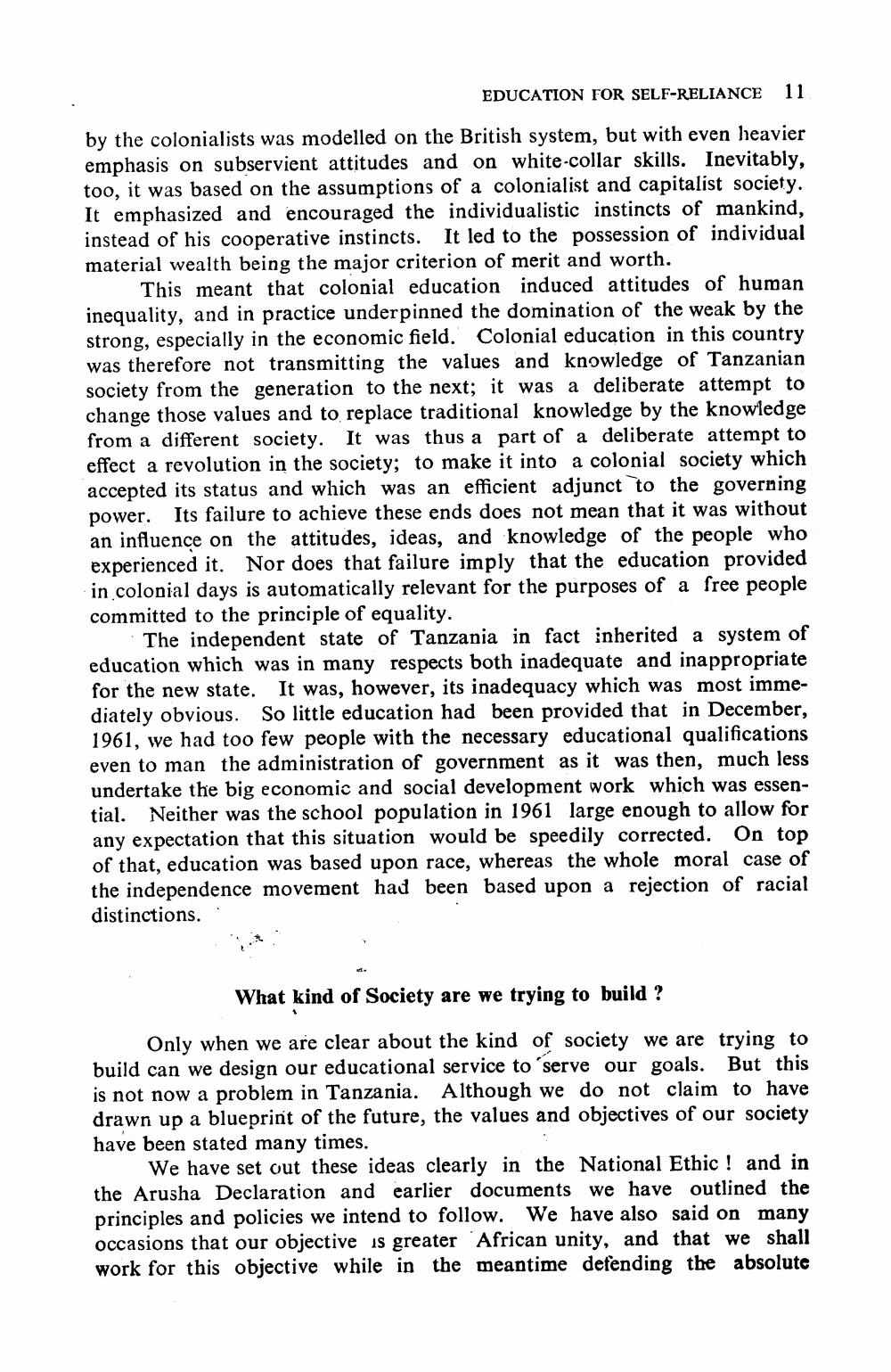________________
EDUCATION FOR SELF-RELIANCE 11
by the colonialists was modelled on the British system, but with even heavier emphasis on subservient attitudes and on white collar skills. Inevitably, too, it was based on the assumptions of a colonialist and capitalist society. It emphasized and encouraged the individualistic instincts of mankind, instead of his cooperative instincts. It led to the possession of individual material wealth being the major criterion of merit and worth.
This meant that colonial education induced attitudes of human inequality, and in practice underpinned the domination of the weak by the strong, especially in the economic field. Colonial education in this country was therefore not transmitting the values and knowledge of Tanzanian society from the generation to the next; it was a deliberate attempt to change those values and to replace traditional knowledge by the knowledge from a different society. It was thus a part of a deliberate attempt to effect a revolution in the society; to make it into a colonial society which accepted its status and which was an efficient adjunct to the governing power. Its failure to achieve these ends does not mean that it was without an influence on the attitudes, ideas, and knowledge of the people who experienced it. Nor does that failure imply that the education provided in colonial days is automatically relevant for the purposes of a free people committed to the principle of equality.
The independent state of Tanzania in fact inherited a system of education which was in many respects both inadequate and inappropriate for the new state. It was, however, its inadequacy which was most immediately obvious. So little education had been provided that in December, 1961, we had too few people with the necessary educational qualifications even to man the administration of government as it was then, much less undertake the big economic and social development work which was essential. Neither was the school population in 1961 large enough to allow for any expectation that this situation would be speedily corrected. On top of that, education was based upon race, whereas the whole moral case of the independence movement had been based upon a rejection of racial distinctions.
What kind of Society are we trying to build ?
Only when we are clear about the kind of society we are trying to build can we design our educational service to serve our goals. But this is not now a problem in Tanzania. Although we do not claim to have drawn up a blueprint of the future, the values and objectives of our society have been stated many times.
We have set out these ideas clearly in the National Ethic! and in the Arusha Declaration and earlier documents we have outlined the principles and policies we intend to follow. We have also said on many occasions that our objective is greater African unity, and that we shall work for this objective while in the meantime defending the absolute




